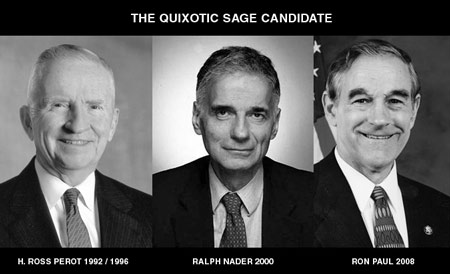Heard on NPR about televangelists fighting Senator Grassley’s request for information on their finances and how these tax-exempt organizations spend their money.
For example, Grassley wants to know for what tax-exempt purpose Joyce Meyer Ministries, based in Fenton, Mo., bought a $30,000 malachite round table, and spent $11,219 on a French clock and $19,162 on Dresden vases.
He’s also interested in the total amount of “love offerings” received in lieu of salary by Bishop Eddie Long of the New Birth Missionary Baptist Church in Lithonia, Ga., and how Long reports them on his W-2 forms to the Internal Revenue Service.
Kenneth Copeland Ministries, in Newark, Texas, also received a letter. Grassley is curious about reports that a gathering of ministers presented Kenneth Copeland with a “personal gift” in excess of $2 million, in celebration of the organization’s 40th anniversary.
On the one hand, some religious groups want to abolish the separation of church and state when they want to change the law to reflect religious principles, but when it comes to protecting their finances from taxation and scrutiny they want to preserve the separation of church and state.
Influence is a two-way street.

 I have been reading the first volume of Robert Caro’s biography of President Lyndon Johnson,
I have been reading the first volume of Robert Caro’s biography of President Lyndon Johnson,